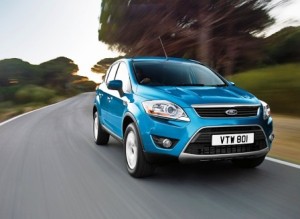A small backwater a decade ago, China has become the big engine of the global auto industry – but while passenger car sales posted another double-digit gain last month, the pace of the growth has been slowing noticeably this year raising big concerns for manufacturers looking to the Asian nation to offset problems in Europe and other parts of the world.
Part of the problem is that with traffic reaching constant gridlock level, some cities – including the capital Beijing – are now imposing strict limits on car sales. China has also reined in some of the incentives that helped boost demand the last several years.
But despite the disturbing signs at least a few manufacturers, including General Motors and Ford, continue to post record numbers, there partly by targeting some of Chinese newest consumers in cities off the Pacific Coast.
For July, Chinese passenger car sales rose 11.2%, according to the China Association of Automobile Manufacturers. That’s up sharply compared to the first quarter of 2012 when the market was virtually flat compared to year-earlier demand. But June saw a 15.8% increase buoying hopes that China was back on track.
Nonetheless, July was a good month for General Motors and its joint ventures which collectively sold a record 199,503 vehicles in China during July, a 15.1% increase from last year’s previous high for the month.
Among a select few makers, Ford also reported record volume in July – though Ford has been just a second-tier player in the market until recently, having come to China far later and far more cautiously than GM. The second-largest of the Detroit makers is flooding the Chinese market with new product, such as the new Kuga crossover, and adding new plants, with a goal of doubling sales by mid-decade.
Among Europeans, BMW reported a 22.3% increase over July 2011. So far this year, BMW has sold 182,048 BMW and MINI vehicles in the Republic of China, a 29.6% increase compared with 140,472 during the same period a year ago. The new BMW 3 Series Long Wheelbase and the BMW X1 are expected to provide for further robust growth in China in the second half of the year, BMW officials said.
But even among the strongest manufacturers there were some worrying signs in July. GM’s sales for the full year have risen only 5.7%, well under Chinese market CEO Kevin Wale’s target of 8 to 10% for the full year. And while the Buick brand reported a 4.8% jump in July, Chevrolet actually dropped 2.8%
Analysts are pointing to a variety of factors that could trip the Chinese automotive market. The nation’s economy, overall, may feel a pinch as exports to places like Europe slow, for one thing.
And then there are the new limits being placed on buyers in Beijing, Shanghai, Guangzhou and Guiyang. In the capital, regulators are distributing only a set number of registration permits monthly to restrain further growth in a car fleet already straining the limits of the city’s roads.
Countering such measures, however, industry watchers point to growing demand in second and third-tier cities that until recently felt little of China’s economic boom.
Nonetheless, expectations are for a much slower pace of growth than China has seen in recent years. The market surged by 45.5% in 2009, even as the U.S. market sunk into its deepest downturn since the Great Depression. A year later, Chinese car sales jumped another 32.4%. But Citicorp is predicting just a 5% increase for all of 2012 and even the most optimistic predictions to emerge from the recent Beijing Motor Show hovered in the 10 to 12% range.
Meanwhile, The Reserve Bank of Australia has dampened expectations. RBA governor Glenn Stevens pointed to mixed signs about China, though he also said he was optimistic an economic slowdown there appeared to have stopped.
The Chinese economy weakened earlier this year as a real-estate boom in major cities such as Shanghai and Beijing slowed to a crawl. In addition, the ruling Chinese communist party is in the midst of a dramatic leadership change, which has added to an air of uncertainty around the nation’s economy.
Nonetheless, the Chinese economy has proven more resilient than many western economists had expected and at least for now appears to have avoided recession while growing at a slower pace.
Paul A. Eisenstein contributed to this report.

